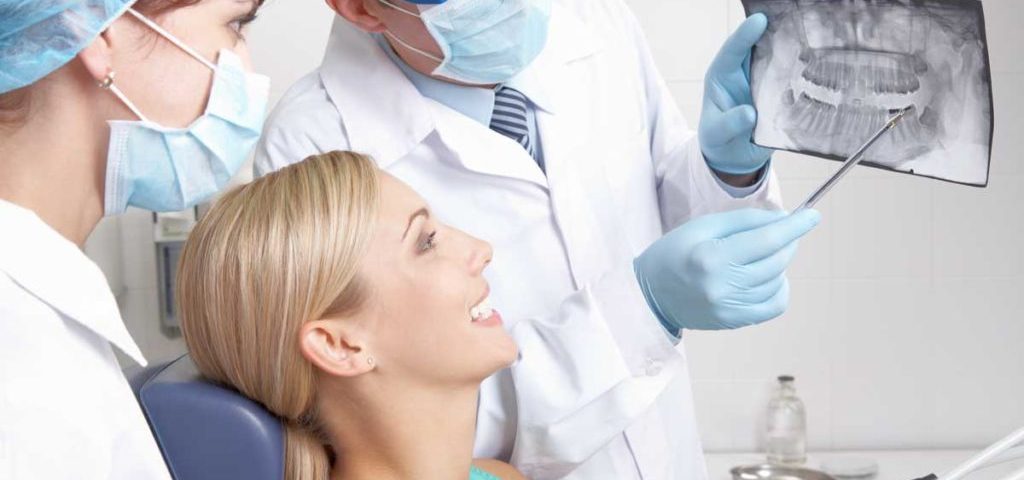
Feeling Better After An Oral Surgery
May 29, 2018
All About Bone Grafting
October 30, 2018Top 20 Questions Before An Oral Surgery

Top 20 Questions You Ask your Oral Surgeon During a Consultation
Are you ready for your oral surgery?
Consulting with an oral surgeon you can trust before your oral surgery can help make you feel at ease. Oral Surgery Associates of Charlotte provides professional and top-notch oral and maxillofacial surgery options.
Before you undergo an oral or maxillofacial surgery, consult your oral surgeon to know the kind, scope, and procedure that is right for you.
During your consultation at Oral Surgery Associates of Charlotte, our board-certified oral and maxillofacial surgeons will educate you about the kind of treatment you will be undergoing, the scope of treatment based on the condition of your teeth, jaw, gums and mouth, how the procedure will be performed, and the post-surgery procedures you need to do.
Our surgeons may answer questions you have even without asking them, but it is better to come prepared during your consultation.
Here are the top 20 questions you should ask your oral surgeon during your consultation and before your oral or maxillofacial surgery:
1. Is there a need for a pre-surgery consultation appointment?
Some patients may think that consulting with a dentist and obtaining a referral is enough to undergo an oral or maxillofacial surgery. However, it is best to have a pre-surgery consultation appointment with the oral surgeon to give him first-hand examination of the condition of your teeth and mouth.
During the pre-surgery consultation, your oral surgeon can discuss his diagnosis and create a custom plan surgery option based on the condition of your teeth. Your oral surgeon can also discuss with you the anesthesia options available for the dental surgery you will undergo.
2. Do I need to secure a referral from a dentist to set an appointment with an oral surgeon?
Having a general dentist perform a check-up and cleaning of your teeth is advantageous for your oral health.
However, you can always contact us or schedule an appointment at Oral Surgery Associates of Charlotte and consult directly with our board-certified oral surgeons.
3. Is it necessary to have an x-ray before an oral surgery?
An x-ray of the entire or part of the mouth is necessary to aid your oral surgeon in viewing the inside of your mouth and teeth or jaw that needs treatment.
At Oral Surgery Associates of Charlotte, we use 3D cone-beam imaging equipment for the x-ray needs of our patients. With this advanced technology, patients’ exposure to radiation is minimized.
4. What oral treatment is best for my teeth?
Our oral surgeon will conduct full examination and check up on your teeth, jaw, gums, face, and mouth to determine the most appropriate treatment that suits your dental need.
Oral Surgery Associates of Charlotte offers the professional services of Dr. Erik Reitter, DDS, Dr. Karthik Naidu, DMD MD, and Dr. Matthew Bronk, DMD.
They are board-certified oral and maxillofacial surgeons practicing a full scope in wisdom teeth removal, dental implants, bone grafting, corrective jaw surgery, teeth extractions, dental infections and oral pathology, impacted canines, and other oral and maxillofacial treatments.
5. Oral procedures seem to take some time, is it alright to eat before the scheduled surgery?
For some patients, eating can help them feel comfortable and anxious-free. However, the kind of anesthesia that will be applied during the treatment should be taken into consideration.
If you are receiving general anesthesia, then you are advised to refrain from eating 6 hours before the scheduled oral or maxillofacial surgery. If the procedure requires a local anesthesia that you may eat a light meal before the surgery.
6. Are there options for anesthesia and what is the recommended type?
The type of anesthesia to be administered depends on the level of a patient’s anxiety and the complexity of the procedure. After a comprehensive check-up with your oral surgeon, a recommendation from an anesthesiologist may be requested.
There are oral surgeons who are also skilled and experienced in administering anesthesia. Dr. Bronk is a member of the American Dental Society of Anesthesiology and can help you understand the right anesthesia to apply for your surgical treatment.
7. My child is due for an oral surgery, is it possible for me to accompany my kid during the surgery?
Parents may accompany their child during the pre-surgical consultation to ask questions on behalf of the child. It is strongly advised, however, that parents should stay in the waiting room during the surgery as part of the patient safety protocol.
Our practice is a full scope of oral and maxillofacial surgery including pediatric dental and surgical care.
8. After my oral surgery, can I be allowed to drive home?
If the procedure requires an general anesthesia, then it is best that you be accompanied by a licensed driver who can take you home safely. If the procedure requires nitrous oxide or local anesthesia, then you may be allowed to drive home.
In any case, an oral or maxillofacial surgery may take awhile, hence, it is advisable that a responsible adult who can drive should accompany you to your scheduled surgery.
9. What types of insurances does Oral Surgery Associates of Charlotte accept?
Any type of insurance is accepted at Oral Surgery Associates of Charlotte. All we need to obtain an estimate of your benefits prior to your scheduled surgery. The estimate is based on the information given by your insurance provider but is not a guarantee of benefits, coverage or payment.
All professional services are filed to your insurance as a deduction, and the remaining amount becomes the responsibility of the patient.
10. How long is the oral surgery?
Knowing how long the treatment would take can help the person accompanying the patient to fix his or her schedule. This can also give the patient an insight as to the severity of the patient’s condition.
At Oral Surgery Associates of Charlotte, our oral surgeons will discuss how long the procedure would go. They will educate you with the overview of how the treatment will be done to make you comfortable all throughout the procedure.
11. What happens during the surgical procedure?
During your pre-surgical consultation, a custom plan surgery procedure will be discussed with you by your oral surgeon. This would help you understand why certain incisions and other dental procedures are performed.
The goal is to let you understand why such oral surgical treatment is necessary, and what result are we aiming for.
12. Is there a risk of any complication?
Trusting the hands of your oral surgeon is greatly appreciated during surgical treatments. You, as patients, have one role, that is to communicate all pertinent information to your oral surgeon.
Any illnesses or medical conditions you have should be communicated properly in order to avoid any complications that may arise from the surgery.
13. Is there a risk of infection?
An oral surgical facility is a small version of a hospital surgery room. Thus, it has to follow infection control guidelines as well.
Oral Surgery Associates of Charlotte adheres to the infection control guidelines ensuring the safety of every patient. We are committed to providing exceptional dental care and oral surgical treatments.
14. Are there medications recommended before and after the surgery?
There are surgical procedures that entail medication even before the scheduled oral surgery. Oral surgeons advice that you should buy and prepare your medication covering post-surgery prescriptions before the surgery is performed.
In this way, you will not have to bother buying the medication after the surgery, and instead, focus on your recovery.
15. How long will it take for me to recover?
Knowing how long the recovery period is an important detail to note. This way, you would know how long you should take time off of work, school or your daily routine, especially those that are strenuous in nature.
Your Oral Surgery Associates of Charlotte surgeons will educate you about how long it takes for any oral wound to heal or the recovery period of any treatment.
This will help you adjust to your usual daily activities in consideration of the treatment you just went through.
16. Are there food that I need to avoid after the surgery?
In certain oral surgical procedures, there may be open oral wounds such as when a tooth is extracted, or there may be stitches as when your wisdom tooth is removed. In these cases, oral surgeons recommend patients to avoid hot, spicy and hard to chew food, as these kinds of food may cause irritation to the oral wound.
A patient who just underwent any oral surgery should stick with a soft diet which may include ice cream, warm soup, yogurt, scrambled eggs, mashed potatoes, oatmeal, and a lot more.
17. How long do I have to wait before I can resume my physical activities?
Patients who underwent oral surgery should strictly observe a soft diet menu, thus, limiting the means to gain more energy. This also implores the patient to wait for a while before he or she can resume with physical exercises or hobbies, especially those involving strenuous activities.
Consult your oral surgeon to know when is the best time to resume physical activities.
18. Do oral surgeons perform more than one surgery simultaneously?
Oral surgery needs focus from the surgeon performing the treatment. At Oral Surgery Associates of Charlotte, Dr. Reitter, Dr, Naidu and Dr. Bronk believe that each patient deserves their undivided attention during an oral or maxillofacial surgery.
Every patient’s need is unique, hence, every procedure should be performed with utmost care and professional service from the beginning of the treatment until the end.
19. Does your practice use the latest technologies in oral surgery?
Oral Surgery Associates of Charlotte offers exceptional dental care using state-of-the-art surgical facilities and equipment. We use minimally invasive surgical techniques like radiofrequency (RF) or radiosurgery. With this technique, surgical treatments are less traumatic with less bleeding that leads to decreased pain and swelling, and a faster recovery.
20. Are oral surgeons considered medical doctors, too?
Some oral surgeons are considered medical doctors because they have completed a degree in medical school. Dr. Karthik Naidu, DMD MD is a Diplomate of the American Board of Oral and Maxillofacial Surgery, and he has also completed medicine at the University of Buffalo.
There are oral surgeons who seek to provide utmost and excellent oral care to patients through continual education in dental technology and even in the field of medicine. Oral surgeons aim to provide the most recent techniques in providing oral and maxillofacial surgery, and this may include the study of medicine.
These are the top 20 questions you may ask an oral surgeon during your consultation and before an oral surgical procedure. If you have other questions, call us today at 704-549-8020 to schedule an appointment.


